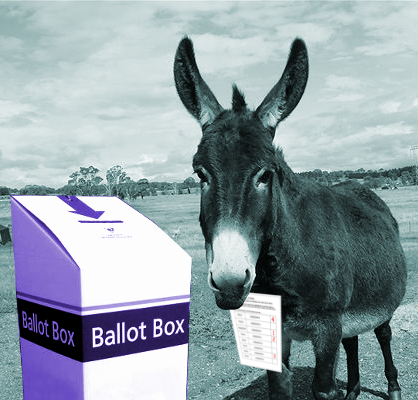Brain scans show mind-bending political lines
 A new study may shed some light on why when politicians talk – those listening often tune out.
A new study may shed some light on why when politicians talk – those listening often tune out.
Australian researchers have conducted brain scans on people while they listened to political statements.
The results showed just how important it is for political leaders to foster community amongst voters, if they really want their messages to get through.
Forty volunteers lined up for the study, conducted by scientists from Monash University, the University of Queensland and the University of Groningen in the Netherlands.
The volunteers identified as either strong Liberal or Labor supporters, and were asked to read and rate how inspirational they found a series of statements.
They were told that the statements, which were made up by the researchers, were from either Liberal or Labor leaders.
While participants read the statements, an MRI scan recorded how inspiring and uninspiring statements influenced the brain areas involved in processing information.
People rated identical statements as more inspiring if they believed they were made by their preferred political party.
Moreover, imaging data showed that when an inspiring statement was made, areas of the brain involved in processing that information, were activated more when volunteers read statements from their preferred political party.
However, these same brain areas became more active when participants read uninspiring messages from the opposing political party.
Lead researcher Dr Pascal Molenberghs, from the School of Psychological Sciences at Monash University said the tests confirm what many people have suspected for years – that people process information in a biased way.
“In ten years of analysing MRI scans I have never seen identical stimuli get a completely opposite brain response from different people. Depending on the leader they identified with, the volunteers reacted to identical statements completely differently,” Dr Molenberghs said.
“The MRI scans showed that people who are strong supporters of a political party focused on the negative aspects of what the opposing party said at the same time that they focused on the positive aspects of their own party messages.”
Co-author Professor Alex Haslam from the University of Queensland said while other studies have looked at the science of leadership to see if some leaders are more inspirational than others, the effect motivational speeches have on voters’ brains hasn’t been analysed until now.
“We believe our results have important implications for leaders who want to get voters on side. In particular, they show how important it is for politicians to cultivate a sense of shared group membership with their audiences,” Professor Haslam said.
“More generally, this confirms that leaders need to build a sense of community with those they seek to inspire. Without this, their lofty words are likely to fall on deaf ears.”








 Print
Print